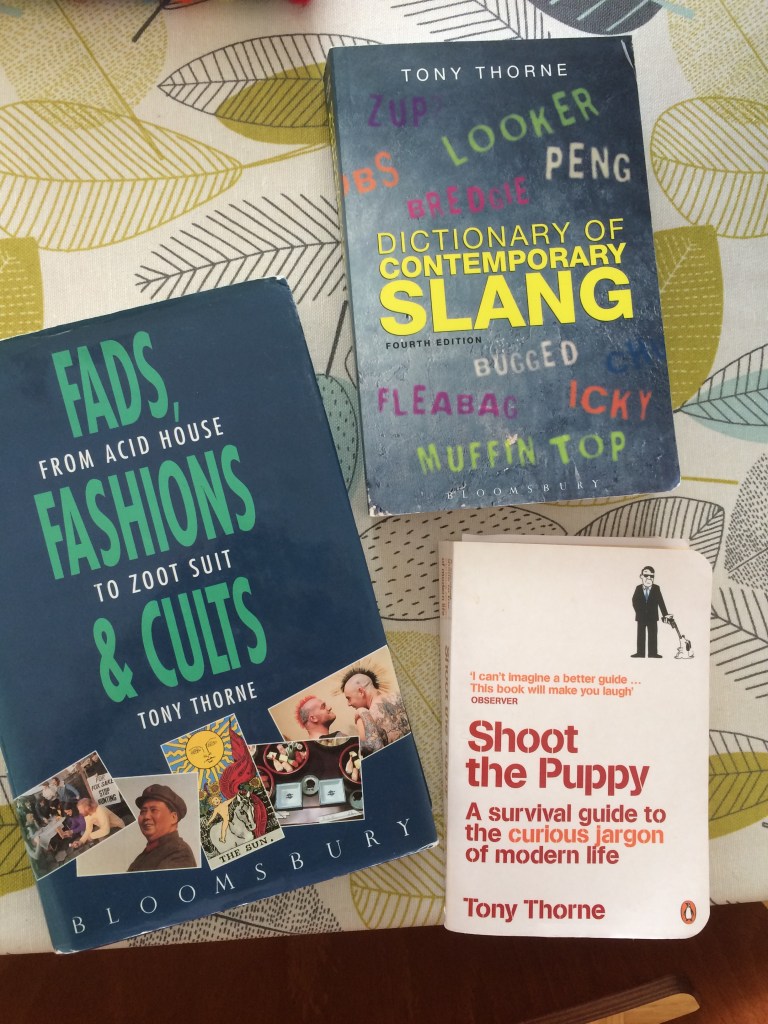Following fashions is an exhausting task. And has become more exhausting still.

I have been recording the fads, fashions, cults and trends that energise popular culture, and the labels by which they register themselves on our collective consciousness, for more than thirty years. With the advent of the Internet and messaging the lifestyle innovations, aesthetic novelties and personal badges of allegiance are nowadays free to go viral, go global, and in many cases to disappear, virtually instantaneously. I talked to Olive Pometsey of The Face magazine (itself an iconic vehicle for the propagation of new ideas and images) about the latest, accelerated, overheated iterations of micro and macro-identities competing on online platforms. The equally frenzied quality of much comment and analysis is perhaps conveyed by the notes I made before we spoke…

Olive’s excellent article is here…
A crowdsourced, online, free-for-all, 24/7 source of slang, catchphrases and new terminology is my friend Aaron Peckham‘s Urban Dictionary. As the Face article was going to press this was its phrase of the day…
vibe shift
Coined by trend forecaster Sean Monahan, a vibe shift describes the emergence of a “new era of cool.”
Fashion is a realm that experiences frequent vibe shifts, especially with the arrival of a new decade. Gone are the days when frosted tips and low-rise jeans and Abercrombie & Fitch were in.
We’re in the midst of a vibe shift right now with the widespread lifting of Covid-19 protocols and restrictions. We’re going out again and adapting in new ways to our environment; some will survive the shifting tides, and some won’t.
Yeah I’m in my vibe shift right now. You won’t catch me in the club now that things are opening back up again. I’m all about going to the Home Depot, renovating my home and hearth, yknow? Once I tried topless gardening things changed a lot for me.
by bruhdisease April 24, 2022
Those once-thriving subjects, Cultural Studies and Media Studies, which I used to teach in the 1990s, are nowhere to be found in today’s educational landscape, and the cultural practices we used to analyse are these days ignored by most commentators, the subcultures (and microniches, hyperlocal communities) if they are mentioned at all are dismissed by older cohorts as trivial, frivolous and ephemeral. I doggedly persist, in solidarity with The Face, Wire, Dazed, i-D, TikTok, nanoinfluencers and microcelebrities, in finding them fascinating and significant.

Just a few days after the Face article appeared, the Mail Online announced the latest look for Summer 2022…
https://www.dailymail.co.uk/femail/article-10782439/Why-blokecore-set-biggest-trend-summer.html
And if you want a comprehensive list of currently trending aesthetic genres, it’s here…
https://aesthetics.fandom.com/wiki/Special:AllPages
A November update from the Guardian features one influential fashion website, and more of the latest terminology (‘auntwave‘)…
…But then, in January 2023 Vice revealed the trend beyond all trends – (and beyond my understanding at first sight)…
https://www.vice.com/en/article/wxnmeq/corecore-tiktok-trend-explained
…In May Hugh Barnard alerted me to a Wiki register of aesthetics…

